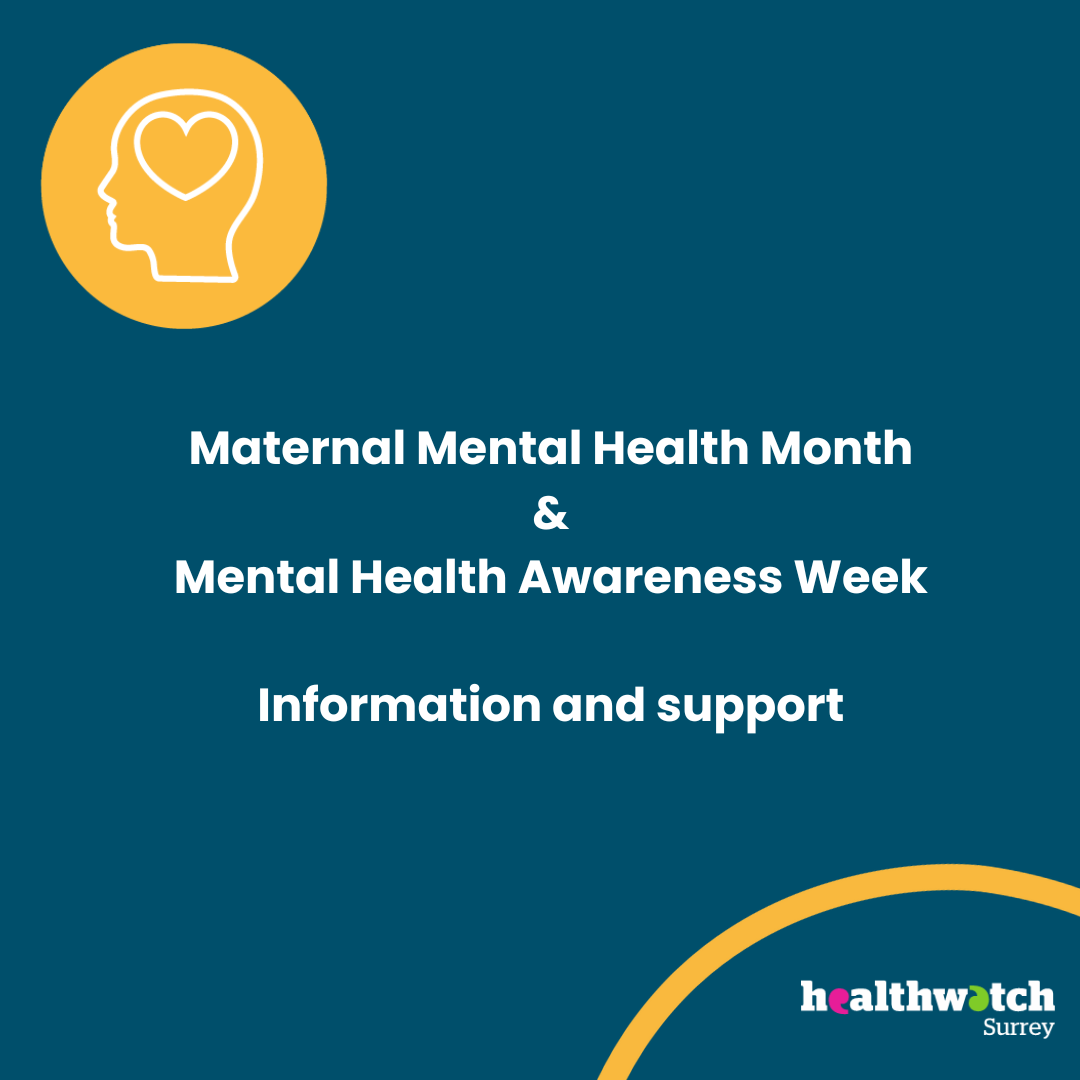
Maternal mental health month
This week is Mental Health Awareness Week and this month is also Maternal Mental Health month and so we have focussed this article on the importance of talking about mental health problems before, during and after pregnancy, aiming to:
- raise public and professional awareness of perinatal mental health problems
- advocate for women and families impacted
- change attitudes and help people access the information, care and support they need to recover.
Most people are aware of postnatal depression, or PND, but depression can also occur during pregnancy. Other perinatal mental illnesses include anxiety, obsessive-compulsive disorder (OCD), post-traumatic stress disorder (PTSD) and eating disorders. These illnesses can range from mild to severe and require specialist treatment as soon as possible. Some conditions may have existed before pregnancy and got worse during the perinatal period, others appear for the first time. Statistics suggest that 1 in 5 women experience a perinatal mental health problem and 70% of women will hide or underplay maternal mental health difficulties.
There’s some useful information on what to do if you or someone you know is unwell on the Maternal Mental Health Alliance website, as well as links to organisations that can help and tips for staying well. Our Helpdesk can also signpost to local sources of information and support.
Need help urgently?
If you feel like you, or someone you care for, might attempt suicide, or may have seriously self harmed, you need urgent medical help. Please call the Crisis Mental Health Helpline which is open 24 hours a day, 365 days a year for mental health advice and support on:
- Telephone: 0800 915 4644
- Textphone: 18001 0800 915 4644
- SMS: 07717 989 024
- Website: Surrey and Borders Partnership NHS Foundation Trust (SABP)
You could also visit any of the five Safe Havens which are open in the evenings, at weekends and on bank holidays and managed by mental health professionals trained to help people in a crisis situation. The Safe Havens also offer virtual out of hours support.

